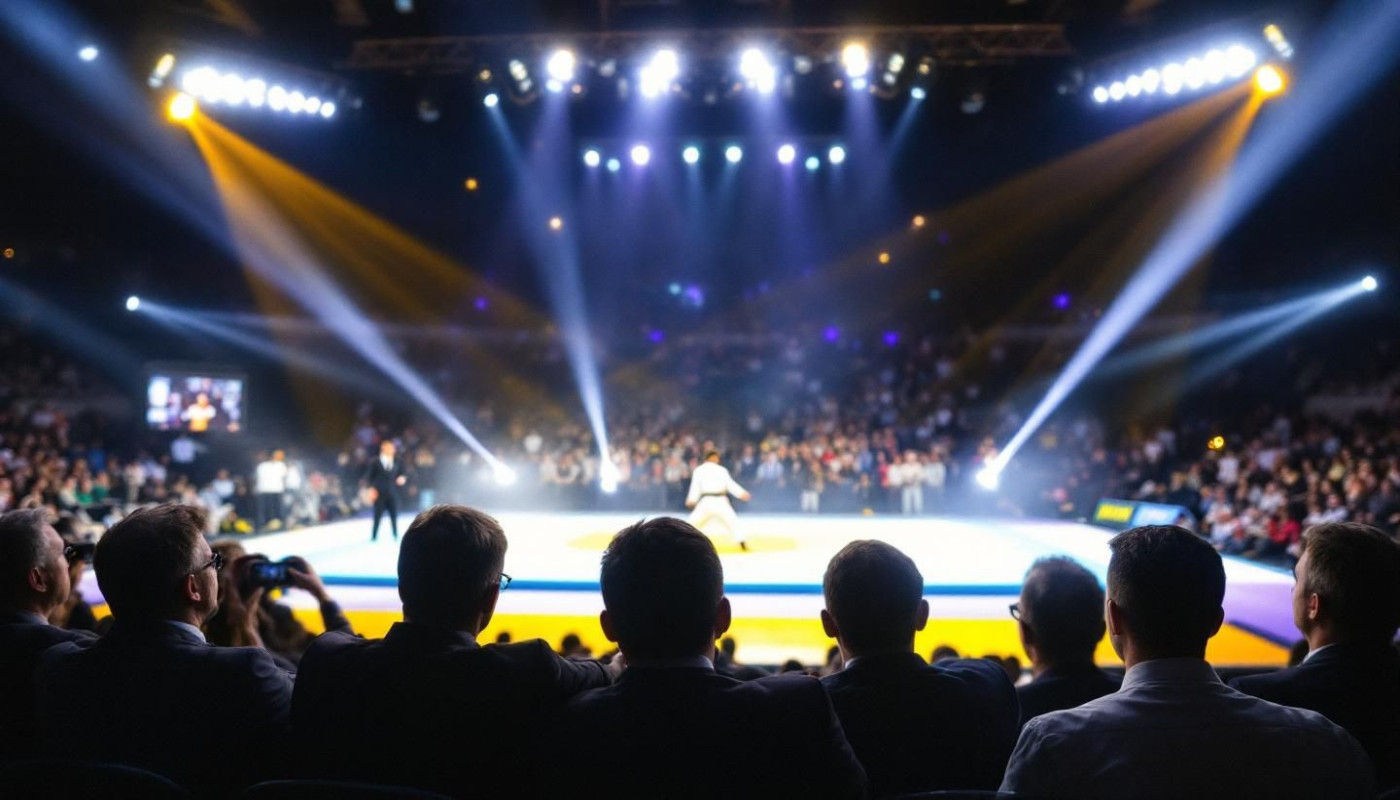Table of contents
Why do world leaders find themselves drawn to the electrifying atmosphere of judo competitions? The answer goes beyond the spectacle of athletic prowess and touches on deeper social, cultural, and diplomatic currents. Dive into this exploration to uncover the reasons that make judo events a magnet for international leadership and discover the broader implications for global relations and influence.
Diplomatic power of sports
Judo competitions serve as powerful arenas for judo diplomacy, providing world leaders with opportunities to engage in international relations through the subtle yet influential mechanism of soft power. These events allow senior diplomats and heads of state to interact in settings that promote sports unity, enabling dialogue beyond traditional political formats. The universal values embedded in judo—mutual respect, discipline, and honor—act as a cultural bridge, connecting diverse nations and fostering understanding among participants and spectators alike. By embracing the global appeal of judo, leaders can signal goodwill, cultivate alliances, and reinforce peaceful cooperation, demonstrating how sports transcend borders and contribute to a more harmonious international landscape.
Showcasing national prestige
Global leaders are often present at judo competitions to demonstrate their commitment to national pride and to advance their countries' standing on the world stage. Such appearances serve as a form of public diplomacy, leveraging the international visibility of judo competitions to highlight cultural heritage and achievements. By attending these events, leaders not only support their athletes but also reinforce cultural identity and send a message of unity and strength to an international audience. These gatherings become opportunities for states to foster positive relations and project an image of excellence, contributing to soft power influence. For instance, when new influential figures join the global judo community, as highlighted in the directory, it demonstrates how national figures leverage the sport to increase both cultural exposure and international engagement.
Economic and strategic interests
Observing judo competitions offers global leaders a unique perspective on leveraging sports tourism for broader economic impact and strategic advantage. High-profile sporting events like international judo tournaments can spark a significant tourism boost, drawing visitors, media, and sponsors from around the world. This influx stimulates local economies through hospitality, transportation, and commerce, creating lasting benefits beyond the event itself. Furthermore, leaders understand that fostering strong trade relations can be facilitated by hosting or attending these competitions, as shared interests in sports often pave the way for meaningful dialogue and collaboration. Sports tourism serves as a catalyst for bilateral agreements, supporting negotiations in sectors ranging from infrastructure to cultural exchange. International trade experts consistently highlight the role of sporting events as platforms for establishing connections, showcasing national capabilities, and initiating new partnerships that extend far beyond the sports arena.
Promoting peace and values
Judo values such as respect, honor, and discipline deeply resonate with global leaders committed to fostering peace promotion and social harmony. Through its emphasis on value-based leadership, judo offers a unique framework where non-violence and mutual understanding are not only encouraged but celebrated. The sport’s traditions require athletes to bow in respect before and after each match, serving as a visible symbol of honor and peaceful engagement. This ritual, coupled with strict adherence to rules and self-control, demonstrates that winning is not achieved at any cost but through integrity and fair play. As a result, judo competitions become a platform for inspiring peaceful coexistence and dialogue among diverse cultures—principles that align directly with the objectives of international diplomacy and conflict resolution. By showcasing these ideals, judo acts as a living demonstration of how sport can advance social harmony and mutual respect, making it particularly appealing to leaders invested in promoting a more peaceful world order.
Personal engagement and inspiration
Global leaders are often drawn to judo competitions due to the profound connection between athletic discipline and leadership inspiration, as these events serve as living examples of transformational leadership. Witnessing athletes demonstrate resilience, focus, and sportsmanship on the tatami allows leaders to reflect on similar values within their own roles. Direct engagement with both citizens and competitors at these gatherings not only strengthens the bond between leadership and society but also offers rare moments where public motivation is visibly cultivated. Such interactions provide leaders with a platform to embody transformational leadership in action—encouraging the pursuit of excellence, fostering unity, and inspiring others to adopt the same commitment to perseverance and respect found at the heart of judo. These shared experiences elevate both leaders and spectators, reinforcing the vital role of sportsmanship and direct engagement in shaping a motivated, cohesive public.


